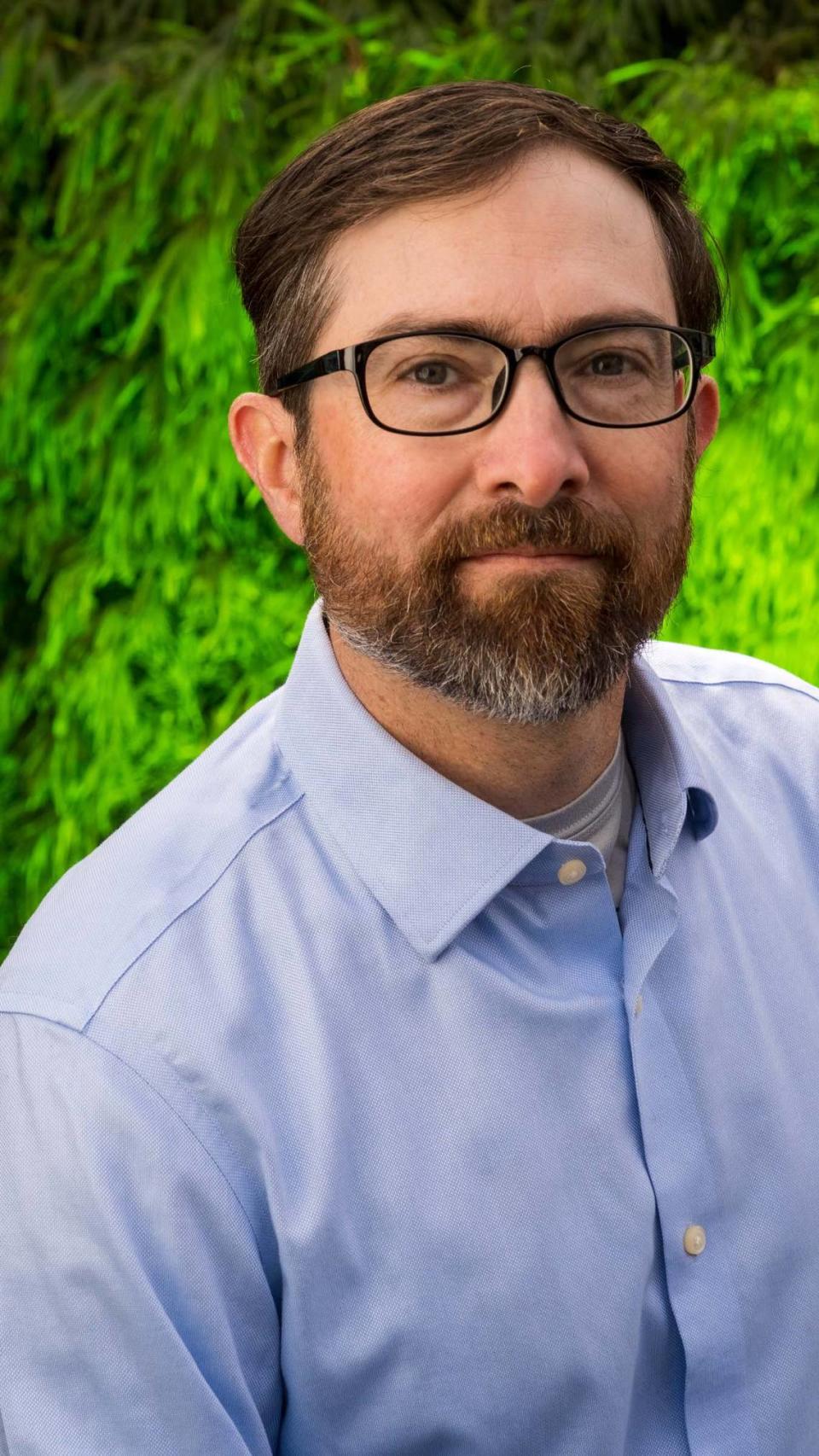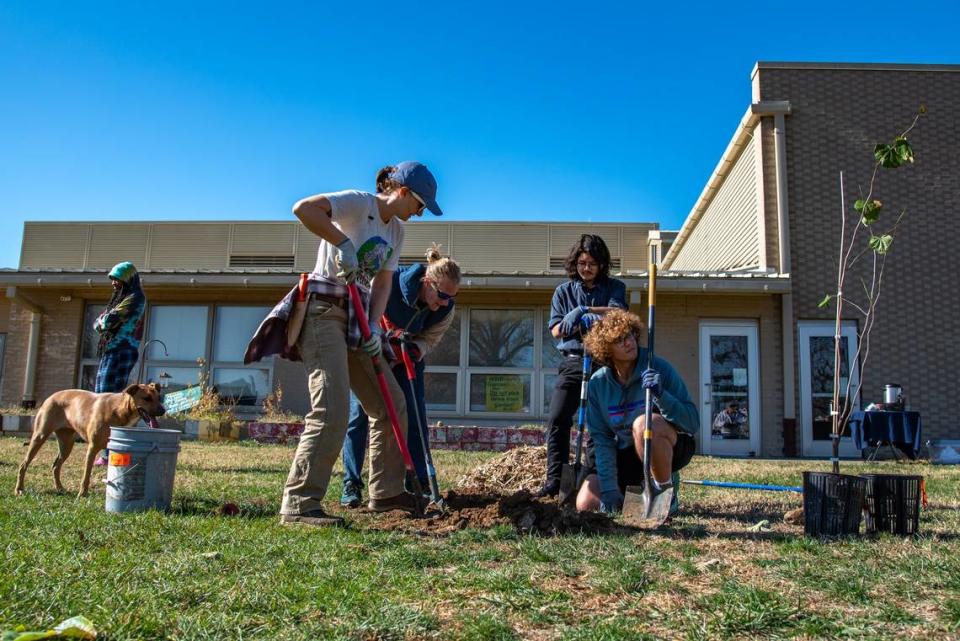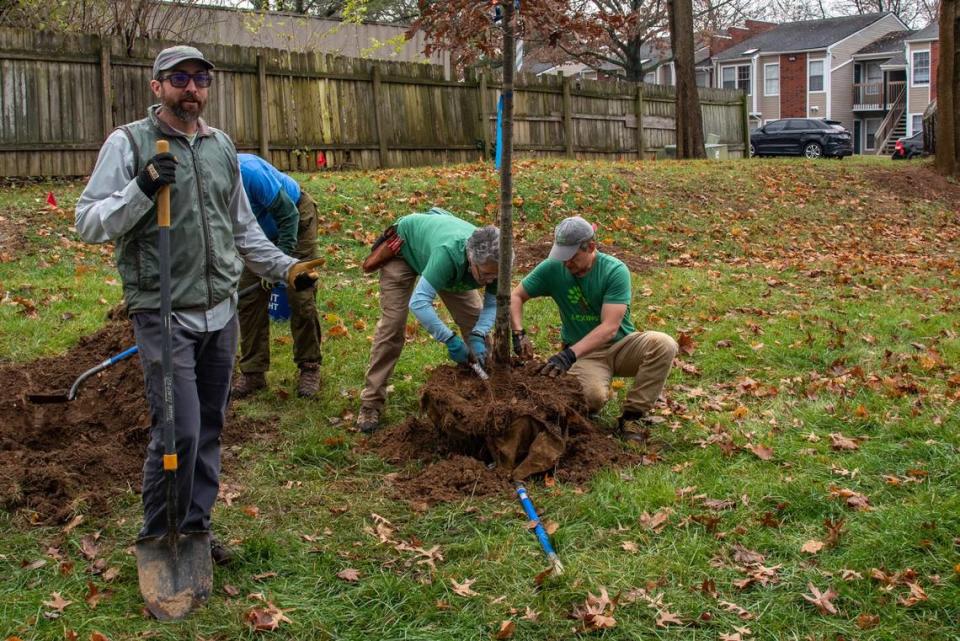‘A wake-up call.’ How a tragic accident and one man helped transform UK’s tree culture | Opinion
One early evening in October 2015, a class of University of Kentucky pharmacy students sat outside Scovell Hall under the shade of a 100-foot-tall sycamore tree.
Without warning, a branch fell and hit one of the students in the head. According to court documents and news reports, a pharmacy student named Jonathan Wang sustained a serious and permanent head injury.
A year later, Wang sued Asplundh, the tree company contractor that UK used at the time. The case dragged on until early 2023, when a sealed settlement was reached. Wang’s lawyer, Julie Butcher, declined to disclose the terms, but said “the client is pleased that he can now move forward with his life in a positive way.”
The case, however, pushed UK to move in a new direction on trees, an integral yet overlooked part of its almost 1,000-acre campus.
They moved tree care in house, and turned UK’s campus into a model of tree care. In turn, ideas and practices at UK helped influence tree lovers in Lexington, in city government and outside it.
“The case was a wake-up call for UK,” Butcher said. “Things did change for the better after Jonathan was injured.”
There are many tree lovers in the UK and Lexington community who form a tightly connected ecosystem of support and advocacy for trees. But much of the story that emerged out of Wang’s accident is due to an arborist named Stacy Borden, who gets significant credit for transforming UK’s tree campus.
Unfortunately for many tree advocates around town, Borden is moving to Atlanta. He’s leaving for a better-paid job, but one of the main factors of his departure is, you guessed it, a disagreement over trees.
A new approach to trees
Borden is an International Society of Arboriculture (ISA) certified arborist who’d worked for various tree companies — including Dave Leonard, who was once described as the grandfather of all things arboreal in Central Kentucky— and Town Branch Tree Experts before being hired by UK in 2016.
“I was hired as the first arborist superintendent,” Borden said. “They brought me on so they would have a single dedicated person whose only focus was tree care. They realized it was worthwhile to have someone who had that as their only objective.”

Borden quickly started with uniform tree protection standards to protect them against the massive construction on campus. He surveyed the trees and put each one on a pruning schedule. When they had to be cut down, they used a portable saw mill so wood could be turned over to professors and students, from forestry to art classes.
He planted trees, lots of them, recruiting students to help on Arbor Day and with Reforest the Bluegrass to plant more diverse choices, some of them native, some of them ornamental. He understood that the College of Agriculture, Food and Environment — home of the Urban Forest Initiative — was a valuable resource and ally.
“He was so good about talking to students,” said Mary Arthur, a founding member of the initiative and a retired UK forest ecologist. “He was thinking about the bigger context of grounds management in terms of best research or the practices that you have.”
One of the best innovations was the Tree Plotter. The trees, now numbering some 13,500, were laid on on a digital map of campus. Each dot is a tree. Click on a dot and find out what kind of tree and when it was planted.
Interested in dogwoods? There’s 20 different kinds. Thirty-two types of oak trees. And so on. The site is also how the crew keeps track of each tree’s maintenance schedule.
UK won national Tree Campus USA recognition from the Arbor Day Foundation, and became a campus model for trees and communities across the state, said Leonard, Borden’s former boss.
“He brought UK into the modern tree care era,” Leonard said.
At the same time, Borden was helping Lexington with its trees.
In 2018, he joined the board of Trees Lexington, the nonprofit founded by the late Lexington council member Jake Gibbs to help Lexington improve its tree canopy. According to recent surveys, the tree canopy data was weak in Lexington’s marginalized neighborhoods and hurt everywhere by aging pin oaks and the emerald ash borer, which killed ash trees.

In 2019, Borden help the group start “pocket nurseries.”
That’s where they would put five or six tiny tree shoots from the state nursery into a grow bag and give them to people in the spring. Those people would nurture them over the summer, then either plant them or give them to others to plant.
“We don’t want to just plant trees,” Borden said. “It’s more about sparking that interest in people to care about trees so they will plant a tree and take care of it and nurture it.”
Borden wants people to get obsessed with trees because they have so much to do with the earth’s health and well-being and by extension, our own.

“I’m mesmerized by the biomass they can generate,” he said. “Just by putting in the soil a little tiny seed, that little bit of cells can generate just tens of thousands of pounds of matter. They’re just amazing — it blows my mind they do what they do, and then all the benefits they give.”
Mulch madness
In 2020, Borden was promoted to campus grounds manager. It was a more complicated job, and at the same time because of COVID and budget cuts, he was told to start saving money.
He said that UK had been spending about $60,000 a year on mulch for trees. A better and cheaper alternative? Wood chips. So, he set up a program where local tree companies could dump their wood chips at UK that would be used to mulch trees.
“It is the best for the soil,” Borden said. “It’s more diverse; it promotes more biological diversity in the soil.”
“In the last three years, we completely converted all of campus to free wood chip mulch. The grounds team there (was) reluctant to do it because it was new and different, but one by one, they changed their minds about it. It’s easier to load and spread, and it doesn’t smell bad.”
But in August, “someone” at UK — which could mean anything from an associate vice-president to a wealthy donor — decided they didn’t like the aesthetics of wood chips.
“I was basically given the directive they don’t like how the wood chips look, and you have to go back to mulch,” Borden said. “Never mind that this is best for the trees, and it’s totally free. The desire for that aesthetic has overruled everything.”
Borden was so mad he started looking for a new job. He found one faster than he expected, as a consultant for the SavATree company in Atlanta, the second-largest tree company in the country. It’s better paying and probably not as challenging as being in charge of an entire campus grounds.
But the wood chip debate at UK was “definitely a factor,” Borden said.
“I was hired to do what was best for the trees, and now I’m being told to do things based on what it looks like,” he said.
His last day at UK was Dec. 4.
Focus on trees
Nic Williamson is the current arboriculture superintendent for UK. He says that with a team of three full-time campus arborists, they will continue to take care of campus trees.
Williamson was unable to be more specific about the mulch, but he said discussions were ongoing.
“Bringing tree care in-house has allowed us to work in tandem with the other entities— the academic side, forestry, plant and soil science, there’s all kinds of expertise on this campus,” Williamson said.
“We’re thinking more deeply about tree preservation and how to link arms on a growing university ... I think it’s really done a good thing to make it more of a focus to put trees in the conversation.”
An ecosystem is more than one tree, and organizations must be more than one person. But UK and Lexington always need knowledgeable and passionate people. It’s a shame a disagreement over mulch couldn’t be worked out.
For Butcher, the lawyer who knows a lot about UK’s tree care system because of the lengthy Wang lawsuit, says she hopes UK will indeed continue Borden’s care and concern.
“I’m concerned at this point: Will that same sort of rigorous training continue now that Stacy is not there?” she asked.
She pointed to March’s devastating wind storm that brought down huge trees all over town.
“I hope that more people realize that we need to care for the trees for so many reasons — for the health of the tree, for the health of the community.
“Beautiful trees make a beautiful community.”

